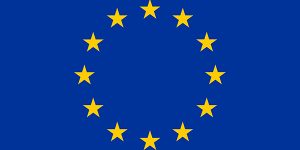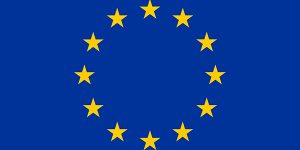Good afternoon, ladies and gentlemen!
I am just coming from the European Parliament’s Foreign Affairs Committee where we had a very constructive debate on the 2016 Enlargement package, which the European Commission adopted earlier today.
As you will remember, I set out a medium-term strategy last year, focusing on “fundamentals” of the rule of law and competitiveness, and with clear priorities and deliverables to be met by our candidate countries. With today’s communication, we are taking stock of the implementation of this strategy and of the developments of each country, summarised again in clear recommendations.
Before I deal with the individual Enlargement countries, a few general remarks:
- Remarks on Enlargement Policy
- First of all, our Enlargement policy delivers step by step, and it is geostrategically as relevant as ever.
- The unprecedented challenges the European Union faces around its immediate borders requires more than ever very close cooperation with our neighbours, backed by a clear and credible European perspective for these countries. Geography is destiny!
- The migration crisis is the most obvious example of the added value of such a close cooperation. Not only Turkey, but also the Western Balkan countries – which are an enclave in the EU – have contributed substantially to managing the crisis together.
- Thus it is in our very own interest to stabilise and help transform these countries. We must not leave a strategic vacuum in our frontyard. Despite the internal challenges the European Union is facing, the accession perspective remains a key incentive for the reform processes in these countries. And through this transformation we create security, stability and prosperity for our partners – and for ourselves.
- But this transformation needs time: it is a comprehensive process. Therefore our strategy has always been guided by the principle “quality before speed”. There are no speed limits on the path to Europe. I want to push ahead as fast as possible, and I will not stop anyone from being ambitious. But ultimately, the only thing that counts is whether a country is truly ready for accession – mature enough, in political and economic terms. This is also crucial for our citizens: they must see new members of our club are an asset, not a burden.
- Hence each candidate country defines the pace of progress itself. I therefore urge the political leaders in our partner countries to take stronger ownership of reforms. We can’t and we won’t do their job for them! Their citizens and especially the young Europeans in their countries expect nothing less from them.
- Findings on individual countries
Let me now come to the individual countries:
For Albania, we have issued a strictly conditional recommendation to formally open accession negotiations. The recommendation acknowledges the hard work done to adopt constitutional amendments which pave the way for the comprehensive judiciary reform, a project requested by Albania’s citizens since long. There has also been solid progress on the five key priorities as a whole. But this is still very much work in progress. This is why our recommendation is conditional, that means subject to tangible and credible progress in the implementation of the justice reform. In this context the vetting process of judges and prosecutors will be crucial for the credibility of the process. We must see results!
Montenegro continues to make progress on its path towards the EU. Progress on the rule of law chapters, demonstrated through a tangible track record especially in the fight against corruption and organised crime, will determine its further pace towards accession. The recent Parliamentary elections have been conducted under a substantially revised legal framework and overall, in a more participatory and transparent manner. The fact that Montenegro stuck to its EU-orientation despite pressure, as well as to joining NATO, have to be highlighted.
Serbia has made remarkable progress, resulting in the opening of the first four negotiating chapters. Further progress in the normalisation process with Kosovo and on rule of law will be key to continue the overall positive development. I am confident that the new government which reconfirmed the strategic objective of Serbia’s EU accession will make all efforts to achieve this. Serbia needs also to be commended for its very constructive role in the migration crisis and its generally helpful role in the region.
As for the former Yugoslav Republic of Macedonia, on which I have been investing a bit of my time, the continuing political crisis is not resolved yet. Recent positive steps in the context of the Przino agreement (esp. the elections in December) are now a vital opportunity to overcome it for good – that’s what the country’s citizens rightly demand. Credible elections, the unhindered work of the Special Prosecutor, and the implementation of all urgent reform priorities are pre-requisites for this. On the basis of the positive steps taken and the commitment expressed by the political leaders, we are prepared to extend our long-standing recommendation to open accession negotiations – but conditional on credible elections and the implementation of reform priorities. It has also to be mentioned that the country, like Serbia, was particularly affected by the migration crisis and played a positive role in its management.
Bosnia and Herzegovina has delivered on the priorities of its reform agenda – that is why the Council tasked the Commission to prepare an opinion on BiH’s membership application. My services are working on the next step, the so-called questionnaire. A positive outcome will depend on progress with tackling socio-economic reforms, strengthening the rule of law and public administration and the implementation of the adopted coordination mechanism.
As for Kosovo, I welcome the entry into force of the Stabilisation and Association Agreement on 1 April which provides a comprehensive framework for closer political and economic cooperation. I commend Kosovo also for the good progress made on visa-liberalisation. But it is now high time that the two remaining benchmarks are fulfilled. Kosovo’s leadership must now deliver to its citizens! Generally, all political leaders need to embrace a true reform agenda, especially on the rule of law and economic reforms. And as in the case of Serbia, Kosovo needs to commit more actively and make swift further progress in the normalisation process with Serbia.
Last but not least, I would like to summarise our assessment on Turkey:
Let me start with the constructive elements of our co-operation which should not be forgotten despite the overall sobering picture and the recent alarming developments:
We acknowledge in our report fully the difficult situation Turkey faced with the attempted coup, which the EU condemned immediately and in the strongest terms. We highlight also Turkey’s remarkable achievement to give shelter and provide decent care to the large number of Syrian refugees it hosts. Our close cooperation with Turkey in this area has produced tangible results, leading to a substantial reduction in numbers of migrants heading to Greece (from 739 000 to 18.000). This means a significant decrease in deaths at the sea and putting an end to the human traffickers’ business model. In this partnership, the EU has also delivered on its obligations: More than 2 bn EUR out of 3bn of the Facility for Refugees in Turkey are already committed to concrete projects and close to 700 mn have already been paid. It is a partnership that helps the EU and Turkey and the refugees – and therefore we trust that this cooperation continues.
As for the accession negotiations, the EU has also kept its promise to move the process forward by opening two further chapters in November 2015 and June 2016 respectively. Our experts have started preparatory work for opening three further chapters and are upgrading the screening reports for the key chapters 23 and 24. I have personally never concealed my conviction that it is essential for progress in our relationship to open the rule of law chapters – precisely to push reforms in these key areas. But with the recent developments it is questionable if opening these chapters would actually make any sense at this very stage.
There has been and continues to be serious backsliding by Turkey in the areas of rule of law and fundamental rights, especially with regard to the functioning of judiciary and freedom of expression. An already very problematic situation has been further exacerbated by many of the measures taken since July, the scale and collective nature of which give cause for very serious concerns. Our analysis also shows backsliding in the area of public administration reforms and structural economic reforms.
In short: the EU was committed to use a challenging situation to strengthen our ties with Turkey. But in key areas of our relationship and on core international commitments to which Turkey has signed up, Ankara has clearly chosen to move away from Europe, not closer towards it.
The situation in the south-east of the country has not improved either, but worsened. It remains one of the most critical challenges – with continued violence, serious allegations of human rights violations, heavy civilian casualities, large-scale internal displacements and extensive devastation affecting the whole region.
This is a very sobering analysis given that already last year’s report pointed to serious shortcomings, resulting in concrete recommendations. Yet, these were largely ignored despite an intensified cooperation and engagement on our part.
The well-known critical developments of the last few days confirm unfortunately the overall assessment of our report. We say very clearly in our report that a robust response to the coup attempt under the state of emergency was logical. But the measures taken since July now affect the whole spectrum of Turkish society from the military and the police to university professors, teachers, lawyers and judges, media and all parts of the business community. The very large scale of detentions and arrests combined with the seizing of property, the overall lack of due process and credible reports of ill-treatment and torture, all this can hardly be seen as “protective, pre-cautionary measures” under the state of emergency. These measures are, on the contrary, de-stabilising the country and polarising the society to the highest degree. And they are hardly helping Turkey as an investment location, in already difficult times.
Let me be clear: we are not making this up as we go along. We are not “discriminating” as some say mistakenly. On the contrary – we are measuring Turkey with the highest standards precisely because it is a candidate country and has itself subscribed to these rules as a sovereign choice. But for a self-stated EU candidate, the current, serious backsliding is simply not acceptable.
All EU institutions, many Member States, HRVP, as well as the Secretary General of the Council of Europe of which Turkey is a member, have repeatedly called upon Turkey’s government to respect the rule of law in full and strictly apply international human rights standards, which is a “must”, even under the acknowledged, challenging circumstances.
Our partners of the Council of Europe and our own experts are still committed and engaged on the ground to assist Turkey to align with EU and international Human Rights standards. We are also assisting Turkey with fulfilling all the remaining benchmarks required for visa-liberalisation, which is also a part of the EU-Turkey statement. This is key, especially with regard to Turkey’s current anti-terrorism legislation. With all due respect to the multiple threats Turkey faces and to which it must respond: this legislation must be changed to make sure it cannot be used against journalists, academics and the opposition.
In the same vein let me reiterate a related point Federica Mogherini and I made last week, in response to the detention of 11 democratically elected MPs from the HDP: We are seriously concerned that this will add fuel to the conflict in the South-East. We are deeply convinced that the Kurdish issue can only be solved politically.
III. CONCLUSION
In conclusion, I can just repeat President Juncker’s words of deep regret and disappointment that Turkey has apparently chosen to move away from Europe – despite the clear European aspirations and hopes of many of its people.
Our commitment and concrete engagement with Turkey was and is sincere for the sake of the people. But the ball is clearly in Turkey’s court now. It is up to the responsible Turkish authorities to take a clear decision about Turkey’s future. Turkey’s leadership must tell us what they want – and act accordingly. And they must explain it to their people.
The conditions for continuing the accession negotiations are known since long. They haven’t changed. There will be no “migration bonus” and even more importantly, there can and will not be any concessions on our part on the core criteria. There is no “Turkish variant” of democracy or the rule of law. There is only one democracy, one rule of law, to be fulfilled by ALL candidate countries. Let me add: this includes the abolition of the death penalty, no matter what its legal scope is.
The country report for Turkey adopted today by the Commission has already been discussed this morning in the European Parliament’s AFET. I think I can say there was broad consensus. This report is also a wake-up call for Member States, too, to start an open discussion without any taboo on our future relationship with Turkey. The facts are on the table. After all the developments documented in the report we cannot continue with “business as usual”. We owe an honest, straightforward reaction in support of the people of Turkey, who should have the fundamental right to express their opinion and to live in a pluralistic and democratic society where protection by rule of law is guaranteed. But we also owe it to our own credibility – the credibility of our enlargement policy, of our values, and of the Union in the eyes of our own citizens.
Thank you for your attention!



